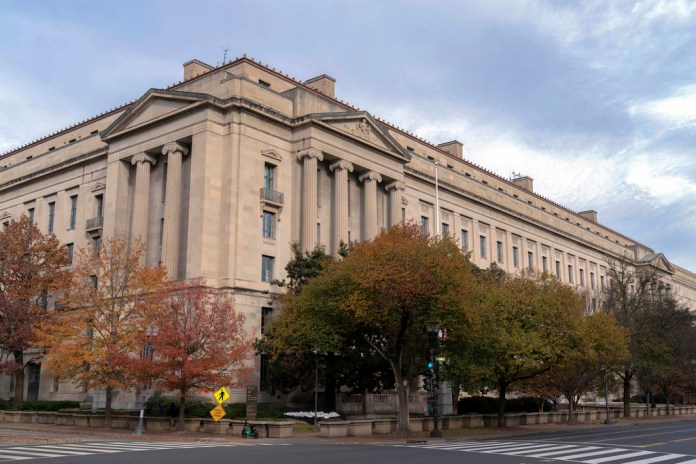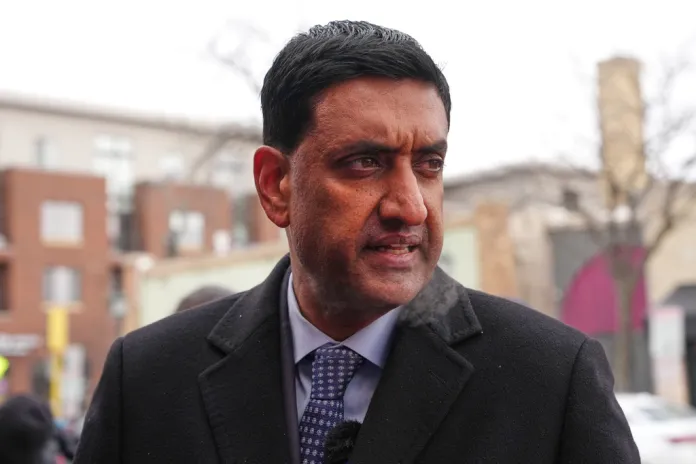Expanding Epstein inquiry puts GOP on potential collision with DOJ – Washington Examiner
the House GOP is expanding its examination into the Jeffrey Epstein case, which could lead to a conflict with the Department of Justice (DOJ) under former President Trump’s management. The House Oversight committee has issued subpoenas to several powerful, predominantly Democratic figures, including former President Bill Clinton, as part of a broader inquiry into Epstein-related files. Republicans on Capitol Hill aim to uncover records and associates of Epstein, potentially pushing the DOJ to prosecute contempt of Congress charges if subpoenas are defied.
However, the Trump administration has shown little interest in pursuing the Epstein investigation, and legal experts note that DOJ prosecutions for contempt of Congress are rare and often politically charged. The history of administration officials ignoring subpoenas without facing prosecution suggests that the DOJ, led by Trump allies, may be reluctant to pursue this matter.
Previous contempt referrals under both Democratic and Republican-controlled Houses have seen limited legal consequences, as seen with individuals refusing to comply with subpoenas during the January 6 investigations and other congressional inquiries. The current round of subpoenas also targets notable figures from various administrations, including Hillary Clinton, James Comey, Robert Mueller, Jeff Sessions, Alberto gonzales, and Loretta Lynch.
House Oversight Chairman james Comer set deadlines for testimony and document submissions, stressing that subpoenas are legally binding and expressing an expectation of compliance, though the cooperation level from those subpoenaed remains uncertain. The committee is also seeking production of the Epstein files from the DOJ. Despite political and partisan challenges, Comer has had some success compelling testimonies in other oversight matters, even though many witnesses have invoked their fifth Amendment rights and declined substantive responses.
the expanding Epstein investigation by House Republicans signals a potentially intense legal and political battle over subpoena enforcement and broader oversight,amidst reluctance from the Trump-aligned DOJ to engage vigorously.
House GOP’s expanding Epstein inquiry could set up clash with Trump DOJ
Congressional Republicans could be on a collision course with the Trump administration as the House expands its investigation into the Jeffrey Epstein files.
Subpoenas from the House Oversight Committee for testimony from powerful former politicians, predominantly Democrats, that include former President Bill Clinton, are the start of what could become a politically and legally explosive inquiry that ends with GOP lawmakers asking the Justice Department to prosecute contempt of Congress charges.
President Donald Trump and administration officials have shown no appetite for the Epstein files saga, raising the stakes for Republicans on Capitol Hill determined to expose records and former associates of the late convicted sex offender and disgraced financier.
“Generally speaking, contempt of Congress charges are really the primary way to enforce a congressional subpoena,” said Neama Rahmani, a former federal prosecutor.
However, the long history of current and former administration officials defying congressional subpoenas has created a checkered and partisan prosecution record. And with Trump seeking to move past his decades-old relationship with Epstein, it seems unlikely the Justice Department, led by close allies, would want to reopen the political controversy with related criminal prosecutions.
“If DOJ doesn’t do anything, it’s really the end of the road,” Rahmani said. “There’s no precedent that will force [Attorney General Pam Bondi] or anyone else at the DOJ to take on any case, including a referral from Congress.”
Under Biden, former Trump aides Steve Bannon, Peter Navarro, Mark Meadows, and Dan Scavino had a Democratic-controlled House vote to refer contempt citations to the Justice Department for declining to cooperate with subpoenas from the now-defunct January 6th Committee. However, only Navarro and Bannon were prosecuted and convicted.
Several recent examples of lawmakers defying subpoenas and facing little consequence include then-Minority Leader Kevin McCarthy and Reps. Jim Jordan (R-OH), Scott Perry (R-PA), and Andy Biggs (R-AZ). The Jan. 6th panel, which issued the subpoenas, referred them in 2022 to the House Ethics Committee rather than prosecution from the DOJ.
Also under Biden, a GOP-led House referred a contempt citation for then-Attorney General Merrick Garland. As the man in charge of the DOJ, Garland was not prosecuted, as was the case with two attorneys general before him who were held in contempt by the House. Those men were Obama Attorney General Eric Holder and Trump’s first-term Attorney General Bill Barr.
Two House committees last year, including Oversight, recommended holding in contempt of Congress Biden’s son, Hunter Biden, for rebuffing public testimony regarding the chamber’s presidential impeachment inquiry. However, House Republicans ultimately did not hold a full House vote.
Garland, Holder, and Barr are facing a case of déjà vu with subpoenas from House Oversight Chairman James Comer (R-KY). Others targeted by the latest round of subpoenas included Clinton, former Secretary of State Hillary Clinton, former FBI Directors James Comey and Robert Mueller, and former Attorneys General Jeff Sessions (Trump’s first term), Alberto Gonzales (Bush), and Loretta Lynch (Obama).
It’s unclear the degree of cooperation, if any, that the former officials are willing to offer and the lengths that Republicans are willing to go to prosecute those who are determined to be uncooperative. Comer established deposition and record return dates for each Epstein-related subpoena, starting with Barr on Aug. 18 and running through Oct. 14 with President Clinton.
A House Oversight Committee spokesperson said the subpoenas are “legally binding and duly authorized. As always, the committee will engage in good faith negotiations while expecting compliance from all parties.”
Comer’s panel, in a bipartisan 8-2 vote, went a step beyond individual subpoenas by requesting the DOJ produce the Epstein files by Aug. 19.
COMER TESTS HOUSE SUBPOENA POWER AS EPSTEIN INVESTIGATION EXPANDS TO CLINTONS
Although a lack of cooperation with the other side of the aisle has become the norm in Washington and handicapped lawmakers’ oversight abilities, Comer has seen measured success in at least forcing former high-profile Biden officials to appear for depositions, particularly those related to Biden’s use of the autopen amid his alleged cognitive decline.
Still, most who’ve appeared in recent months invoked their 5th Amendment rights and declined to offer substantive testimony.
" Conservative News Daily does not always share or support the views and opinions expressed here; they are just those of the writer."




